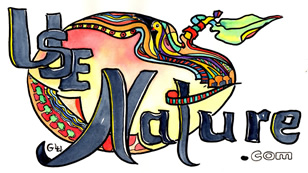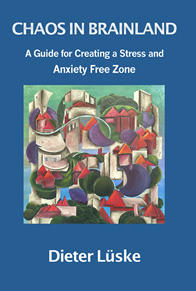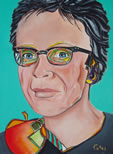useNature.com ... Holistic Health - Emotional Choice Counselling - Goal Setting Techniques
Goal Setting Techniques
EMOTIONS AND THEIR FUNCTIONS
Lifestyle Online Magazine - Holistic Health Information
Article: Emotional Choice - Goal Setting Techniques

Article extracted from a workshop & book called:
DO YOU BELIEVE IN YOU - by Dieter Luske© - Gold Coast
... all following articles, are written as workshop manuscript
... questions were asked to stimulate active participation.
ARTICLE NUMBER - 27 - Chapter Three
Goal Setting Techniques
- NEW BOOK - NEW BOOK - NEW BOOK - NEW BOOK - NEW BOOK - NEW BOOK - NEW BOOK - |
| NOTE FOR PRACTITIONERS: Combining Natural Therapies with Counselling modalities is what a Holistic Health is all about. - The Chaos in Brainland Book addresses this issue and provides a wide array of counselling techniques suitable to enrich a Holistic Natural Health Clinic for practitioners and patients alike. - BUY NOW |
How well do you manage your mind and your life now?
Are you mismanaging your mind less, have you changed some of your bad habits, do you worry less? Has anything changed in your life?
As we discovered, most of us can drive a car, but do we know where we are driving to?
This is what we will find out now
Instead of driving our live's aimlessly around, running out of energy, we will drive our car of life to a destination, a goal!
It is like going on a long car trip. You have to prepare for it. - You have to sit down and decide where it is you want to go.
Pick out the route you want to travel.- Decide what you want to take along, and whom.
Calculate your cost, time and stops. - Check over your equipment, give your car a service.
Decide on exactly when you want to go, how long it will take and when you will arrive.
Be prepared for detours and emergencies.
Be flexible in case you have to change your destination.
Therefore the only way to be successful in life is to take some of your time and create and design your life.
ASK YOURSELF RIGHT NOW:
-
What do I actually want out of life?
- What do the people you love and care about want out of life?
Those two questions may well be the hardest questions you could ever ask yourself and if you have answered them already, you are well on your way.
If not, stay with me a bit longer.
Your mind and your body are precision instruments and it is up to you how you use them.
Those instruments have been created for a reason, don't let them go to waste.
If you agree with that statement, then it's essential to be able to create and design your life so that you know precisely where you want to go and also know the components that can help get you there.
I will repeat some of those main components.
-
The only failure is the failure to participate.
-
There are no limits to what you can do.
-
Excellence can be duplicated.
-
If other people can do something, you can do it.
-
Success or failure begins with belief.
-
Whether you believe you can do something or you believe you can't : YOU ARE RIGHT.
-
A mistake is a learning experience.
-
Make corrections rather than repeating mistakes.
-
Stick to the facts.
-
Whatever you are committed to, you'll achieve.
The subconscious mind is constantly processing information in such a way as to move us in a particular direction. Once your mind is programmed, your subconcious mind and your nervous-system will do half the work for you.
As you are able to drive your car without consciously thinking, you can get to your goal, making all the right turns, without consciously thinking.
The only requirement is having your mind programmed to an 'automatic response'. This may sound like robot-talk, but it is directly the opposite.
Programmed in this sense means 'to know what it is that you want', so that your subconscious mind can give you all the help you need.
So before the mind can work efficiently, we must know the goals and outcomes that we expect to reach.
Once the mind has a defined target, it can focus and direct and refocus and redirect until it reaches its intended goal. If it doesn't have a defined target, its energy is squandered.
Having no goal, no outcome, no target, no design for your life is like trying to walk across the desert blindfolded, or to drive your car without knowing where to go.
When you know your desired outcome, you give your brain a clear message as to which kinds of information your subconscious mind needs to guide you toward your goals.
If you carry with you a clear well-focused goal, then your subconscious mind can direct you to areas of information and data which you have not been previously aware of.
Keep in mind, that if you use only the left-side of your brain, you use only a fraction of your brain capacity. Getting your right-side of the brain into action, will double your brain capacity. Involving your subconscious mind will more than double that again.
If you are not sure what you want out of life, what goals and outcomes you would like to pursue or what your purpose is (or will be), then this is the time to go for it.
The key to your goals is to ask yourself the right questions to stimulate the right answers.
Before we go into these questions we have to set our mind up with some rules for creating stimulating circumstances.
GOAL SETTING RULES:
-
There are no limitations as to what is possible. Limited goals create limited lives.
-
State your desired outcome in positive terms. Say what you do want, not what you don't want.
-
Be specific. Engage all of your senses in describing the results you want.
Set a completion date and/or term. -
Be in control. Your outcome must be initiated and maintained by you and must not be dependent upon other people.
-
Part of your outcome must be always measurable and also ecologically sound and desirable.
-
Your outcome must be one that benefits you and other people, meaning; it must benefit mankind.
... to be continued - next > Goal Setting and Purpose
Article provided by the Editor - Dieter L.
Excerpt from a workshop & book - published 1993 - titled; "Do you believe in You"
www.usenature.com - Dieter Luske ©



